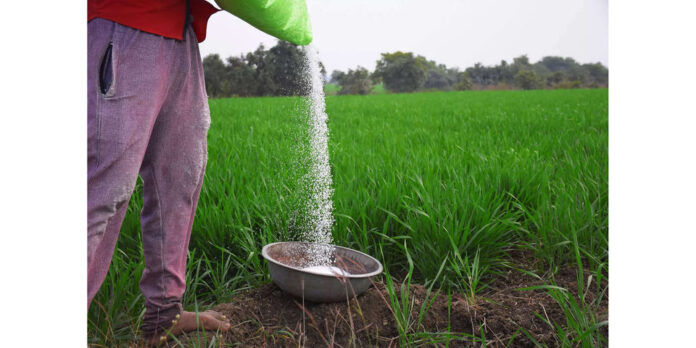Beneficiaries of subsidised fertilizers have pleaded with the government to sustain the programme in the best interest of the country’s agriculture sector.
They made the plea after seeing signs of positive results (increase in crop yields) following the use subsidised fertilisers in the 2022/23 farming season.
President Samia Suluhu Hassan’s administration authorised the distribution of subsidised fertilisers to Tanzanian farmers in an effort to boost output, which had been negatively impacted by a rise in fertiliser prices.
Initially, fertiliser prices skyrocketed, and the spike was attributed to the impact of Covid-19, but the situation worsened following the Russia-Ukraine war outbreak.
Farmers separately expressed their concerns to journalists who toured the northern zone to assess the impact brought by subsidised fertiliser on the country’s farming.
They said the government should sustainably provide subsidised fertilisers in order to maintain realised production achievements.
Additionally, they claimed that higher crop yields ensure the availability of raw materials for industrial production, increase exports, and provide food security.
The Kaloleni irrigation scheme chairman, Mr Mohamed Nditi, said the government, through the ministry of agriculture and the Tanzania Fertiliser Regulatory Authority (TFRA), should sustain the programme for the interest of the sector and the majority of Tanzanians.
“The decision will support farmers’ struggles in increasing efficiency for their own benefit and that of the country in general,” he said.
Mr Nditi leads over 300 farmers at the Kaloleni Irrigation Scheme, which comprises 250 hectares and is located in Moshi Municipal Council, in Kilimanjaro Region.
A scheme member, Ms Candida Urio, seconded Mr Nditi, saying the programme’s sustainability will benefit over 60 percent of Tanzanians who engage in agriculture.
She said farmers working in the scheme used to get 10 to 15 bags of rice per acre, but added that subsidised fertilisers have enabled them to increase harvests to an average of 20 to 30 bags per acre.
“The programme has increased farmers’ understanding of the proper use of fertilisers at different farming levels,” she said.
“We are thankful to President Samia Suluhu Hassan for the decision by her administration to provide subsidised fertilisers to farmers, something that will significantly boost crop productivity,” added Ms Urio.
Another farmer, Ms Rhoda Miria, said apart from making subsidised fertilisers sustainable, irrigation infrastructures have to be improved.
“This will improve efficiency and provide economic benefits to farmers. Before the programme, through rice harvests from the scheme, I could meet the costs of living and cover the education costs for my children,” she said.
“The availability of subsidised fertilisers has enabled me to implement some development projects like constructing a modern house.”
Mr Seleman Kushuma, another farmer at the scheme, said the programme has made the sector more promising now, attracting more players to engage in agriculture, especially the youth.
A retired teacher, Mr Abdallah Shayo, said subsidised fertilisers should reach farmers early, before commencement of the season.
“The irrigation scheme should also be modernised in order to increase production efficiency for the benefit of farmers and the general public,” he said.
An Irish potato farmer, Mr Hermengildi Temu, said the fertiliser has enabled him to expand the size of his farm from the previous 150 acres to the present 400 acres.
According to him, the expansion has made it possible for him to invest half of the money that was previously used for fertilisers and the other half for expansion.
He told reporters who visited his farm in Siha District, Kilimanjaro Region that the government should consider expanding the benefits by including other inputs in the programme, such as pesticides.
“Agriculture extension officers should reach farmers in different parts of the country to help them modernise their farming, instead of operating in a business-as-usual style,” he added.




